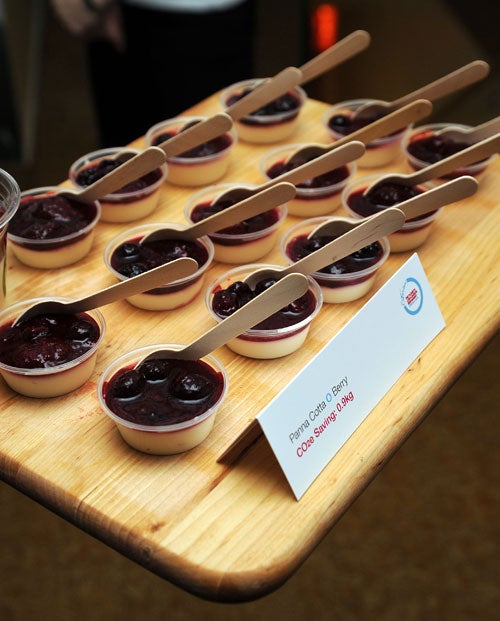Save the planet on the low-carbon diet
At Otarian, menus have a feelgood global-warming index. A gimmick, or the next step in ethical eating?

It was only a matter of time. We've had organic vegan restaurants; eateries that only have raw uncooked food and Fairtrade bistros. Now comes a restaurant offering a menu aimed at saving the planet from climate change.
Otarian claims to be the first restaurant where each item on the all-vegetarian menu has its carbon footprint published alongside the price and carbon cost of the meat equivalent.
The brainchild of one of the world's richest women, Indian billionaire Radhika Oswal, it opens in London next month, hoping to capitalise on a burgeoning consumer demand for all things green.
Sales of low-carbon and environmental goods and services are now worth an estimated £106.5bn in Britain alone – part of a global market worth an estimated £3,046bn. Unsurprisingly, companies are rushing to cash in. But just last month, Which?, formerly the Consumers' Association, condemned what it called "greenwash", where companies make misleading claims about the environmental friendliness of products.
The owners of Otarian are one of India's wealthiest families whose business interests include Burrup Fertlisers, one of the world's biggest producers of liquid ammonium, a pollutant that can kill if ingested and is used primarily as a base ingredient for the production of fertilisers and explosives.
Dan Welch, co-editor of Ethical Consumer magazine, said: "Highlighting the climate change impact of our unsustainable diet, especially meat eating, is laudable. But there's a deep irony in the link to Burrup, one of the world's major manufacturers of the feedstock of chemical fertilisers."
Scientists have warned that nature can't cope with the million tons of chemical fertiliser used annually – acidifying soils, killing vulnerable species and creating what he called "dead zones in the sea".
This inconvenient truth is brushed aside by Radhika Oswal, a billionaire and lifelong vegetarian. "It doesn't mean that if you are doing something good that all parts of you have got to be good. I believe the world needs fertilisers to feed the population there is today," she said.
Instead, the Otarian founder is on a crusade to educate people about the carbon savings they can make by cutting meat out of their diet. She has invested millions in what she admits is more of a personal passion than a business venture.
Celebrity chefs including Hugh Fearnley-Whittingstall and Jamie Oliver are among those who have pursued the green pound, with their enthusiastic promotion of home-grown ingredients and locally sourced produce paying handsome dividends in book sales. Raymond Blanc and Antonio Carluccio are among those who have signed up to the Sustainable Restaurant Association (SRA) which was launched last March in a bid to make restaurants more environmentally friendly, and, of course, as a marketing tool.
Join our commenting forum
Join thought-provoking conversations, follow other Independent readers and see their replies
Comments
Bookmark popover
Removed from bookmarks